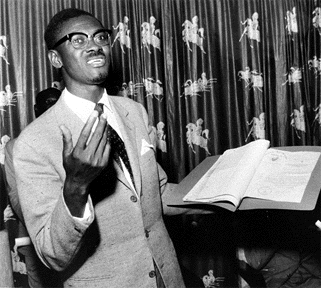
On the occasion of the 50th anniversary of the assassination of Patrice Lumumba, Adam Hochschild writes of Lumumba's promise and United States complicity in his death:
Patrice Lumumba had only a few short months in office and we have no way of knowing what would have happened had he lived. Would he have stuck to his ideals or, like too many African independence leaders, abandoned them for the temptations of wealth and power? In any event, leading his nation to the full economic autonomy he dreamed of would have been an almost impossible task. The Western governments and corporations arrayed against him were too powerful, and the resources in his control too weak: at independence his new country had fewer than three dozen university graduates among a black population of more than 15 million, and only three of some 5,000 senior positions in the civil service were filled by Congolese.
A half-century later, we should surely look back on the death of Lumumba with shame, for we helped install the men who deposed and killed him. In the scholarly journal Intelligence and National Security, Stephen R. Weissman, a former staff director of the House Subcommittee on Africa, recently pointed out that Lumumba’s violent end foreshadowed today’s American practice of “extraordinary rendition.” The Congolese politicians who planned Lumumba’s murder checked all their major moves with their Belgian and American backers, and the local C.I.A. station chief made no objection when they told him they were going to turn Lumumba over — render him, in today’s parlance — to the breakaway government of Katanga, which, everyone knew, could be counted on to kill him.
No comments:
Post a Comment